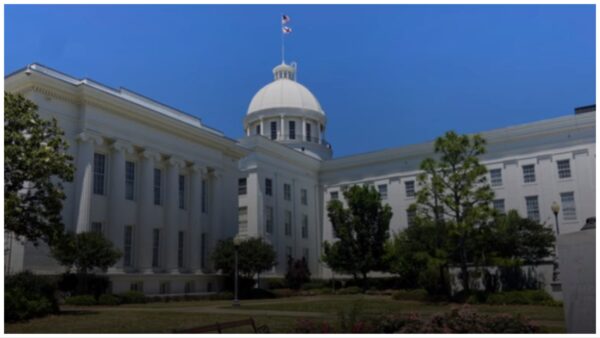Critics are tearing apart Alabama legislators’ decision to propose an imbalanced congressional map after they were ordered by the Supreme Court to redraw district lines that would make room for two majority-Black districts instead of only one.
Last month, in a surprise ruling, the conservative-majority Supreme Court ruled that the state’s GOP-led legislature must amend its map to uphold the Voting Rights Act. Justices decreed that the map disenfranchises Black voters by containing only one majority-Black district when about 28 percent of the state’s population is Black. This justifies the implementation of two districts instead of just one, which is the 7th District.

The court ordered state lawmakers to “either an additional majority-Black congressional district or an additional district in which Black voters otherwise have an opportunity to elect a representative of their choice.”
However, their newly-proposed map does include more Black voters in the 7th District’s neighboring district, increasing the percentage of Black voters from 30 percent to 42.5 percent. But that neighboring district is still not majority-Black.
Critics speculate that lawmakers are betting that these new proportions will satisfy the Supreme Court’s directive.
House Speaker Pro Tempore Chris Pringle, who serves as co-chairman of the state redistricting committee, said the proposal for these new district lines gives Black voters a chance to shape the outcome of congressional elections.
“The goal here, for me, was to provide an opportunity for African-Americans to be elected to Congress in the second congressional district,” Pringle said. “The court said we had to provide an opportunity and that’s what that district does.”
In response, the National Redistricting Foundation called the proposal “shameful” and said it would be challenged.
“It is clear that Alabama Republicans are not serious about doing their job and passing a compliant map, even in light of a landmark Supreme Court decision,” said Marina Jenkins, executive director of the National Redistricting Foundation.
Other Black state lawmakers chimed in with their disapproval of the new plan.
State Rep. Chris England proposed appointing a special master to redraw another map. He tweeted an image of the proposed map and stated, “Of note, this plan was not discussed in either public hearing and it has not been vetted.”
“Once again, the state decided to be on the wrong side of history,” Rep. Prince Chestnut, a Democrat from Selma, said. “We’re fighting the same battles that they were fighting 100 years ago, 50 years ago, 40 years ago, right here today. Once again the super majority decided that the voting rights of Black people are nothing that this state is bound to respect. And it’s offensive. It’s wrong.”
Senate Minority Leader Bobby Singleton said that if the 2020 presidential election were underway with this new map in play, data shows that former President Donald Trump would still have won that new district.
“[It] tells you everything you need to know about that opportunity district,” Singleton said. “What Black person has an opportunity to win in that district? I just don’t see it.”
Rep. Terri Sewell, who represents the state’s only majority-Black district, has yet to comment on the new map.
If the map is approved as expected by the Republican-dominated Alabama Legislature, the fight will relocate back to the courts. State lawmakers are wagering that a lower appeals court will vote in their favor. Otherwise, a panel could intervene and redraw a new plan if it’s found unsuitable.


